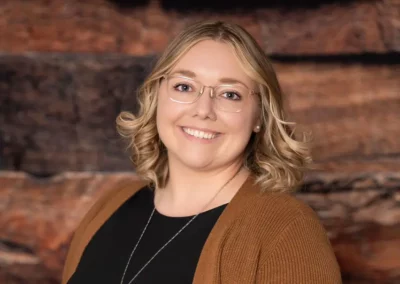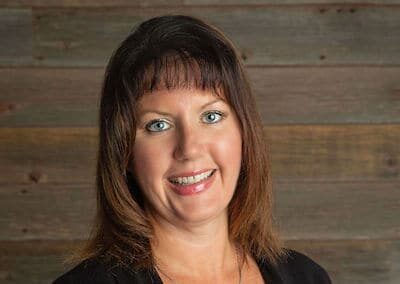Navigating the Canyon of Grief
Grief and loss is a common felt experience during the coronavirus pandemic. For those of us who are experiencing the death of a loved one, whether it be the result of the virus or any other cause, the mourning process can be excruciatingly difficult. The social restrictions and surrounding anxieties of COVID-19 restrain us from our natural tendencies to connect with our social supports and mourn. At this point, we cannot have a traditional funeral, receive condolences face to face, hug, hold, shake hands, get close, and receive physical comfort from people outside of our home. We may also feel like our mourning process and corresponding emotions of shock, denial, anger, longing, depression, guilt, despair, and pain are stuck.
How can we healthily go through the mourning process while abiding by the restrictions of COVID-19? This is a difficult process, as anyone who has grieved the loss of someone close to them can attest, and it takes time. Here are a few things to consider that may assist with the process.
Give Yourself Permission to Feel
Physical distancing is not the same as emotional distancing. We need to feel whatever emotions come to us. Sadness, anger, hurt, betrayal, guilt, and all other feelings are okay, natural, and understandable during loss. If you catch yourself suddenly feeling a rush of emotion, breathe, tune into where you feel it in your body and the sensations you feel. Name the emotion, accept that it is a natural feeling during loss, do what you need to do to feel more comfortable, and remind yourself that at this moment, you are safe.
Talk about Emotions with Others
Its easy to talk about the business side of things when people die – sorting through their stuff, making decisions regarding the division of their estate, finances, etc. It is often harder to talk about feelings, but very important. Share how you are feeling about your loss with others close to you and ask you how they feel. Talk about things that are difficult for you , what you wish you could have told the person before they passed away, along with the positive memories of your loved one and the things you miss. Sharing your experiences of loss is contagious. The more you share, the more others will as well.
Walk Towards Accepting Your Loss and Saying Goodbye
Although a traditional big funeral with lots of hugs and close talking may be out of reach at this moment, there are other ways to accept your loss, find peace, and say goodbye to your loved one. Here are some ideas:
- Write a letter to the deceased person. Include your feelings about his/her passing, what you wish you would have told them before they died, what you miss about them, what you are thankful for, and what things you will always cherish about them.
- If possible, go to a special place that you shared within a home or outside, bring a special photo or symbolic item, and say goodbye.
- Write a poem about his/her life.
- Create a memory book, photo album, or scrap book.
- Write a song about your loved one and sing it.
- Create art (drawing, painting, etc.) that represents the person’s life, death, or both.
Take Care of Yourself
The person who died would likely want you to take care of your physical, emotional, social, and spiritual needs after they have passed away. It is okay to continue your life while grieving. Maintaining routines, planning out your days, following through, investing time to exercise or move your body, connecting with your social supports, going outside and enjoying nature, and looking for the beauty of everyday life are all good options for taking care of yourself, especially during times of grief. So are, eating a balanced diet, drinking lots of water, getting into a good sleep routine, meditating, deep breathing, spiritual practice, and doing things that are relaxing and give you a sense of purpose and joy.
Ask yourself every morning, “what are 5 things that I am grateful for today?” The weather, your family, your friends, that you have enough food, the fact that you know what love is – everything is important, especially those we may take for granted from time to time.
Honor Your Loved One’s Life
Honoring the lives of those who have died is a great way to feel connected and remember their legacy. For example, listening to their music, watching their videos, drinking coffee the way they did, eating their food, going to their grave site or a place of significance to them, lighting a candle, sharing memories and re-telling funny stories with your kids and family. Developing routines out of those practices, whether they are daily, weekly, monthly, or yearly, can have an even stronger effect.
Accept Mourning as a Lifelong Process
Traveling across the canyon of grief is an ongoing, ever-unfolding, lifelong process. You cannot Evel Knievel across this canyon. After accepting the reality of your loss and the emotions that come with it, you may find it easier to make life choices and reinvest in your life and new reality. Overtime, the grief and pain may lesson, but it is common for healing to be a long-term, slow, and forward-backward process.
Discovering meaning in your loss is an important part of the process. This typically becomes possible after the initial crisis stage fades away and the short and long-term adjusting begins. Finding sense and meaning is unique to each individual and your own spiritual beliefs can play a role. Talking about meaning-making with your trusted social supports, including professionals such as therapists, clergy, or spiritual leaders, can make it easier and more purposeful.
Grief is not something that we get over, get past, move on with, or ever forget. Things may get easier over time, but true, healthy adjusting to loss involves making it an essential part of your life story and finding how it makes you a better person.
Reach Out for Help
Therapists who have special training or experience in bereavement counselling can provide a great deal of support as you travel through the canyon. There are various mental health professionals within Lethbridge and area, and many are providing telehealth opportunities during the pandemic.
At Associates Counselling Services, we are providing online therapy during the COVID-19 pandemic through a secure, HIPAA-compliant source. If you would like to get set up or ask questions, please call (403) 381-6000. https://talkinghelps.ca/
Brad Moser, Registered Psychologist

Brad Moser has over 12 years of experience providing therapy for children and teens, adults, couples, and families. His areas of practice include anger, anxiety, bereavement, childhood and family of origin concerns, depression, identity concerns, marital/relationship distress, men’s and dad’s issues, parenting, self-esteem, separation/divorce, stress, and suicidal ideation. Brad is now accepting new clients and is providing a sliding scale for those who cannot afford the normal rate.
Find Your Counsellor
We are proud to offer a diverse and experienced team of counsellors. Whether you require the services of a psychologist or social worker, we have someone ready to help.













